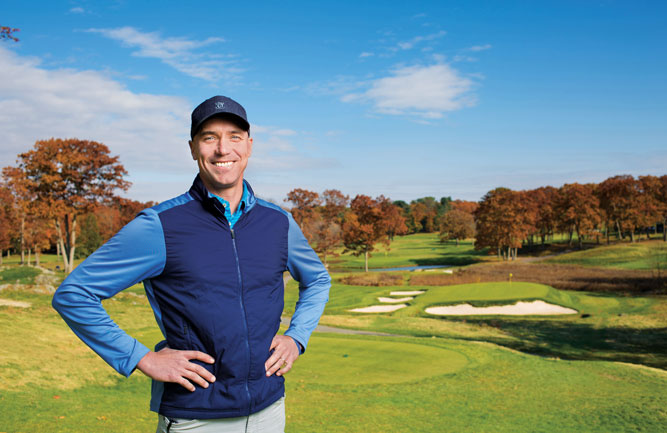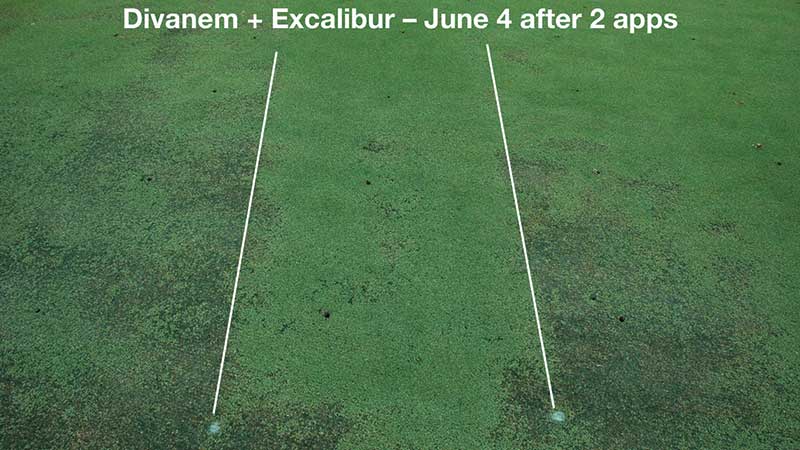Clark Talks Turf: Stop the swatting
 Timothy Gibb, Ph.D., is an entomologist at Purdue University. He has worked on numerous insect problems throughout his career, including turfgrass pests and insects that affect human health. You may reach Tim at gibb@purdue.edu for more information.
Timothy Gibb, Ph.D., is an entomologist at Purdue University. He has worked on numerous insect problems throughout his career, including turfgrass pests and insects that affect human health. You may reach Tim at gibb@purdue.edu for more information.
Q: What are the concerns about mosquitos to golfers and maintenance staff?
Mosquitos can be a nuisance to golfers and staff. A large mosquito population may keep golfers from playing a specific golf course, which hurts revenue. Several species of mosquitos common on golf courses may carry West Nile virus or similar diseases that when transmitted to a person can cause serious and long-term health problems.
Q: What is the general life cycle of mosquitos?
Mosquitos either overwinter as eggs or pass the winter as adults in a hibernation-like state. In either case, they resume activity in spring once enough heat units have accumulated (similar to GDD in plants). A hard freeze or two in fall signals the end of mosquito season.
There can be many generations of mosquitos each year. Adult female mosquitos lay eggs in stagnant or slow-moving water and under ideal conditions (warm water) can develop into adults in 10 to 14 days. In natural settings, the mosquito population is highest in spring and fall when there tends to be more water present, and lower in the summer when conditions are drier.
Adult mosquitos on golf courses tend to congregate in protected and shaded areas, generally not in direct sunlight during the day or where even slight breezes occur. They are more prone to bite in early morning or evening hours.
Q: What is the first step in controlling mosquitos on a golf course?
Good sanitation is the first step in controlling mosquitos. The mosquito species typically found on golf courses are container breeders, meaning females lay eggs in water trapped in artificial containers such as discarded tires, buckets, birdbaths, unused machinery, ruts left by machine traffic and in some cases inside irrigation valve boxes where water stands. Low areas where water collects, at least seasonally, are attractive mosquito egg laying sites.
Prevent egg laying by cleaning up all artificial sites that hold water and also consider draining low areas that hold water.
Q: What can golfers and maintenance staff personnel do to minimize mosquito bites?
Start off by wearing long-sleeved shirts and long pants. Cover as much exposed skin as possible. Mosquitos are attracted to dark colors, so wear light-colored clothing.
Liberally apply a repellant that contains DEET in a concentration of 20 percent to 30 percent. Avoid shaded areas or areas with dense vegetation where mosquitos congregate, especially during the morning or evening hours, when they are most likely to bite.
Q: What cultural practices, beyond good sanitation, can superintendents take to minimize mosquito populations on golf courses?
Encourage a steady flow of water in ponds and develop a natural ecosystem for fish and other organisms that eat mosquito larvae. In areas of occasional flooding, superintendents may add discs or pellets impregnated with Bti (Bacillus thuringiensis subspecies israelensis) to the water to control mosquito larvae. Bti is a naturally occurring soil bacterium and does not pose a threat to people or water supplies.
Q: What about using a fogger to apply an insecticide for mosquito control?
A fogger generates a fine mist or fog of insecticide. The fog of insecticide is only effective on adult mosquitos and only persists for one day. After one day, adults from untreated areas move into the previously treated areas and the mosquito problem is back. A fogger used for mosquito control is most effective when applied the morning before a special event like an outdoor wedding or other social occasion, or the day of an important tournament. Target the fogger on shaded, high-vegetation areas where adult mosquitos are found.
Using long-lasting insecticides to treat mosquito larvae in a pond is sometimes necessary but should be used only as needed and based on frequent larval surveys. Keep in mind that insecticides may upset the ecosystem of the pond. If natural predators are harmed or prevented from consuming mosquito larvae, such treatments can result in a continued reliance upon insecticides in the pond.










